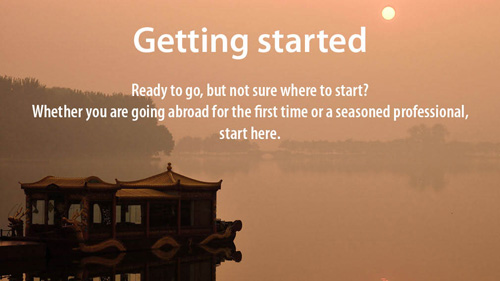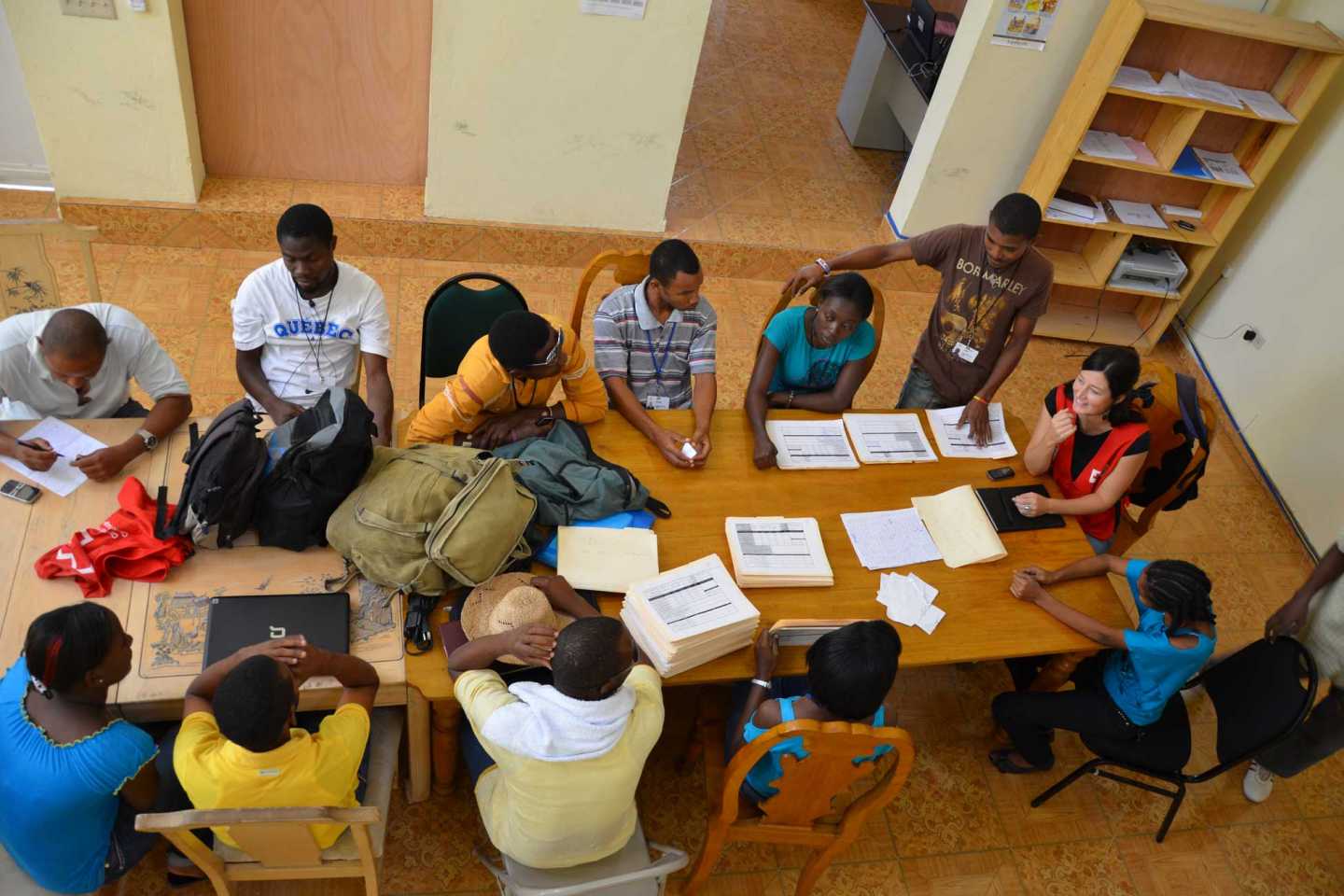What are global competencies
So, what exactly are global competencies, and how does overseas experience help you to gain them? Global competencies are a set of knowledge, skills and attitudes that enable a person to live and work successfully within another culture.
It's worth spending some time breaking these down—looking at knowledge, attitudes and soft skills separately—because it is actually the combination of these that leads to the outcomes we associate with intercultural competence.
This is important because looking at any skill or ability in isolation can be misleading. For example, "good communications skills" are often cited as one of the most important global competencies. But this can mean something very different to urban North Americans—who tend to communicate very directly and may ask a lot of questions—compared to some northern Inuit communities for example, where it is considered disrespectful to ask questions of elders, much of the communication is non-verbal, and careful observation is valued. Cultural context is vital to effective communication.
So, let's look at knowledge, attitudes and soft skills separately—and see how their combination contributes to intercultural effectiveness.
1. Hard skills and knowledge
These are skills that can potentially be acquired, to a certain extent, through studies in your home country or elsewhere. They include:
Global knowledge: Geographic, political, economic, and cultural knowledge, knowledge of global trends and world issues, and knowledge of the particular region you wish to work in;
Knowledge about the international aspects of your field; and
Language skills.
University or college provides a great opportunity to develop hard knowledge and skills through your coursework. Even in faculties that don't have an international focus, careful selection of electives that have an international component can help you to gain some hard skills and knowledge relevant for your field or for international work in general.
2. Attitudes
Attitudes are distinct from so-called "soft skills" because they describe an approach to intercultural interactions and learning—a consciousness and awareness. They include:
Cultural self-awareness:
Ethnocentrism is ingrained in most of us, and is usually difficult to even recognize until we step outside our own culture and have our perceptions and beliefs challenged. Understanding how our own background and culture have influenced our worldview, attitudes and behaviours is a fundamental step to being sincerely respectful of other worldviews.
Respect and openness:
Cultivating an attitude of genuine openness and curiosity about other cultures will help you to think comparatively, without prejudice, and view cultural differences as learning opportunities.
Curiosity and humility:
Like an iceberg, much of a country’s culture may be hidden below the surface. To develop your knowledge of another culture, you'll need to seek out meaningful interactions, put yourself in unfamiliar situations, and be willing to move out of your comfort zone. Humility, modesty and an awareness of one's own ignorance are an important part of this.
3. Soft skills
Listening and observation skills, socio-linguistic skills:
Other cultures may communicate differently from what we are used to—for example, communicating more indirectly, or being reluctant to disagree or to deliver bad news. It is important to develop the ability to recognize and accommodate these differences. You’ll need to be aware of non-verbal cues, cultivate patience, and develop the ability to adjust speech (both speed and word choice) to accommodate speakers of other languages.
Analytical skills and critical thinking:
In order to be culturally sensitive, you need the ability to view the world from someone else’s perspective. While this is ability is partially rooted in empathy and emotional intelligence, it also requires critical thinking and analytical skills.
4. Combining these skills: globally competent behaviours
Ultimately, an inter-culturally competent person is able to draw on all of these skills and attitudes to:
Communicate with people of another culture in a way that earns their respect and trust,
Adapt their professional skills to fit local conditions and constraints; and
Adjust personally to be generally at ease in the host culture.
It is a combination of this knowledge, these skills and attitudes that lead to the behaviours we associate with global competence:
Flexibility, adaptability, sense of humour;
Ability to deal well with stress and navigate ambiguity;
Inter-cultural awareness and openness, empathy and sensitivity;
Communication skills, diplomacy and tact, listening and observing abilities;
Leadership, independence and self-discipline.
Working overseas or within another culture requires skills to cope—personally and professionally—in diverse conditions and sometimes challenging circumstances. You’ll need to be truly sensitive to the cultural context, flexible and ready to adapt your approach according to what resources are available. It requires an openness to working in ways that might be very unfamiliar, or at times feel uncomfortable.
In addition to helping people to thrive in different cultural and country settings, global competencies also allow people to be effective in a variety of work environments, including domestically. Many of the key traits demonstrated by interculturally effective people mirror the same soft skills that employers want—regardless of location or industry—including flexibility, adaptability, empathy and communication.
Cultivating these competencies will help you in a multitude of work environments, while learning how to articulate them will assist you in demonstrating to future employers that you are capable of working effectively in these types of environments.
How do I gain these skills?
Developing true intercultural competence is not something that can be achieved in a short time— nor is it a natural phenomenon. It’s a lifelong journey that requires conscious effort, immersion experiences and critical reflection along the way. But the journey is rewarding every step of the way.
The next section looks at ways to start cultivating global competencies while you are in your own community or on campus. Then, the following three sections look in depth at some of the most common ways that people choose to gain overseas experience and further develop their skills: volunteering abroad, studying abroad, and teaching overseas.
Add to Favorites


